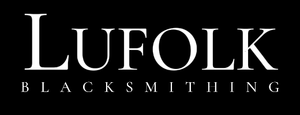3 min read
Valhalla (Old Norse: Valhǫll) translates to "hall of the slain" and is often described as Odin's hall, a place for the fallen warriors. A majestic hall with shields as roof, spears as rafters and chain mails as seats. A hall where the food and drinks never ends. The warriors in Valhalla are known as “einherjar” and they fight each other all day but in the evening all wounds are healed and they feast. This will continue until Ragnarök when the warriors will fight side by side together with Odin.
In grimnismál (Poetic Edda), the speech of the masked one, Valhalla is described: “a gold bright hall of the slain rises peacefully, seen from afar. There the shattered one (nickname for Odin) chooses every day those who died by weapons. Exceedingly easy to recognize for those who come to Odin [the spirit]: to see how his hall is arranged; Spear-shafts for rafters with shields it is thatched. Mail-coats are strewn on the benches. A wolf hangs in front of the western door and an eagle hovers above” - translation by Maria Kvilhaug.
Digging deeper
If we read the myths on a deeper level, one might wonder what Valhalla really is, what does it symbolize? There are different theories. Norse paganism has been practiced long before the viking age but Valhalla seems to be a relatively new thing. There are no earlier mentions of Valhalla than the poems of Eddas. So it seems that Valhalla wasn’t a thing until the Viking age. And since the texts that mention Valhalla are written by christians it could be that it got influenced by the christian heaven. The main religions of today divide the world into good or evil (heaven and hell for instance) but the norse pagans didn't have such a world view and therefore Valhalla should not be mistaken for a “viking heaven” or a “viking paradise”. Even if it was an afterlife and as described it would most likely not have been seen as a paradise. Maybe to a minority, to the actual vikings who raided. But for the majority, the farmers it wouldn't.
Valhalla and Hel, two of many afterlife realms in the norse mythology, comes from the same proto-indo European root word “ḱel” [to cover]. Who knows, maye these two once were the same thing and they later on developed to describe two different things? There are many theories and I will bring up some of them here.
Not a part of norse paganism
One theory is that Valhalla is not an original part of norse paganism. In the poem “Atlakviða” (that could be the oldest of the edda poems) Valhalla is mentioned but in that poem it was a real life hall, not a part of the afterlife which makes some scholars believe that Valhalla was not an original part of the Norse pagan afterlife. The hall mentioned in Atlakviða could have turned into a "paradise" about 100 years later influenced by the christian belief. The christian world view might have created, even if it not was intended, a “norse pagan heaven and hell”. Side note: Norse pagans did not see Hel as a bad place.
Afterlife
Some believe that Valhalla is a real afterlife and a place where a few are picked to go to after death. It could be that we just haven’t found earlier mentions or that it was called something else. Norse pagans were once the same proto-indo Europeans as the people that today got hinduism as religion if we go far back in time. Maybe Valhalla is something similar as Nirvana?
Rebirth
Valhalla equals reincarnation, that Valhalla is the place where the resurrection takes place. If we break down every detail that we know about Valhalla and see the symbolism behind it, we can interpret the myths written as kennings (metaphors) for life on earth to then be reincarnated. The evenings that take place in Valhalla could be a kenning for the rebirth itself.
The tree with golden leaves, the battle, Odin's court, the goat, boar, cook and cauldron, all hints that this could be. Give it a moment and think about how it all comes together. Write in the comments your thoughts!

